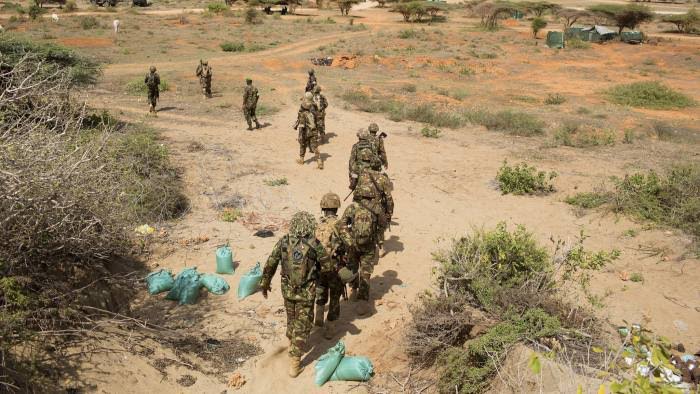NAIROBI,Kenya, Sep, 21 – Kenya marks another year since terror reared its ugly face in one of the deadly attacks the nation has faced.
And while the tears may have dried up for many, for the few who were personally touched, the events of Saturday September 21st 2013, are still raw in their minds and hearts. Since the attack, has Kenya raised its stakes in the fight against violent extremism and terror?
With each passing year, the darkness of that day becomes a significant memory, that still lingers on.
“Westgate attack was a wake up call. Since the 1998 attacks generally as country and as a nation and community, the country had become more complacent. And we may have not realised it, now should we forget,certainly not. We can only forget at our own peril…it is easy after living in relative safety to imagine that that situation is sustainable, its not,” said Dr Hassan Kahnnenje, Director, Horn Institute.
In the last two decades, Kenya has felt the cruel reality that terror can bring, a matter that has forced security agencies to get back to the drawing board on how to get to the root of the matter.
“You don’t just look at the terror attack…but look at the things that our society has done in order to prevent the kind of extremism that informs that kind of terrorism… a lot has been done not just in terms of attacking the terrorist or being ready to fight, but rather what we call the soft approach, going to the society talking to our people,” said Mumo Nzau, Horn institute..
Scholars and technocrats in the field believe that the Westgate mall attack had exposed certain gaps that existed within Kenya’s ability to respond effectively to terror attacks.
“And going by the latest response, especially with regards to DUSIT attack, you realise alot of those lessons had been learnt and there was better coordination, much more reduced fatalities and alot of it has to be attributed to the fact that the system is more robust that what it was way back in 2013,” said Kahnnenje.
“To prevent terrorism, is both long and short term. Meaning that you have to be aware that there could be those active terrorists amongst us. There are those that we call moribund terror cells especially in places where they have ungoverned spaces. These ones my not be active in Kenya but in the region. ” Said Mumo.
As securing the country has forced agencies to get smarter and keep up with the enemy’s changing trends, the country continues to witness on occasion incidents along its borderline.
“What we generally understand is that a lot of these threats are neutralized and are preempted even before they happen. We cannot say that just because we have not witnessed a major attack in the country, there is no threat of terror. Because the environment is still very fragile, and the region is still very fragile,” he said.
“The thing that has become apparent is there is increased radicalization of Kenyans, into extremist groups. The situation is not helped by the continuing instability in Somalia. Because this creates room, for a possibility of drawing in even new recruits, not just from Kenya but from the entire East African region. “
While on the home front, the best bet at defeating terror is engaging the community, with the threat still alive across the border, experts note that some proposed actions are not viable at the moment.
“The discussion about withdrawal can sometimes make for good sound bytes, and can be politically popular across the board. If we see what has happened in Afghanistan, recently then we know what withdrawal of foreign forces and peacemakers in a situation where infrastructure, stability and internal security are absent and where capacities to be able to rebuild are lacking,” said Kahnnenje.
The threat of terror has since been increasing across the continent over the past two decades and while life gets back to a near normal almost a decade later, the nation unites in its hopes that someday, soon, the reality of the threat of terror will be a memory.
Want to send us a story? Contact Shahidi News Tel: +254115512797 (Mobile & WhatsApp)


